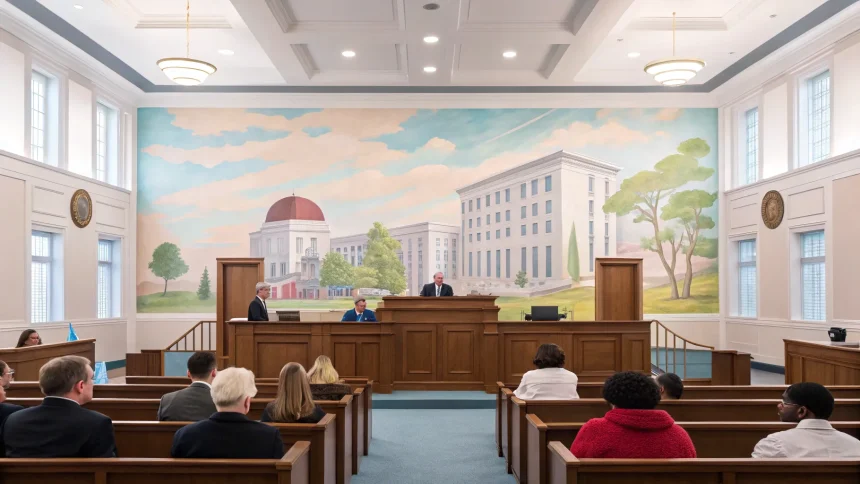A coalition of healthcare providers, religious organizations, university professors, and other groups filed a federal lawsuit Friday challenging the recently implemented $100,000 fee for H-1B visa applications. This legal action marks the first major opposition to the controversial fee increase that affects employers seeking to hire foreign workers.
The lawsuit aims to halt the implementation of the new fee structure, which represents a substantial increase from previous application costs. Critics argue the dramatic price hike could severely impact various sectors that rely on international talent, particularly healthcare and education.
Coalition Forms Broad Opposition
The diverse group of plaintiffs brings together stakeholders from multiple industries affected by the fee increase. Healthcare providers, who often recruit international medical professionals to address staffing shortages, particularly in rural and underserved areas, form a significant portion of the coalition.
Religious groups have joined the legal challenge, likely concerned about the fee’s impact on their ability to bring in religious workers from abroad. University professors, representing the higher education sector, have also aligned with the lawsuit, as academic institutions frequently employ foreign faculty and researchers through the H-1B program.
The coalition’s formation signals widespread concern across various sectors about the potential consequences of the substantial fee increase on their operations and ability to recruit necessary talent.
Potential Impact on Healthcare and Education
Healthcare organizations argue the new fee structure could worsen existing staffing shortages in the medical field. Many hospitals and clinics, especially those in rural or economically disadvantaged areas, rely on foreign-trained doctors and nurses to provide essential services.
“This fee increase threatens our ability to bring in qualified medical professionals at a time when healthcare worker shortages are already at crisis levels,” a representative from the healthcare coalition might argue.
Similarly, universities and research institutions often depend on international faculty and researchers to maintain competitive academic programs. The $100,000 fee could force many institutions to reduce their recruitment of foreign talent, potentially affecting research programs and educational quality.
Legal Arguments and Next Steps
While specific legal arguments were not detailed in initial reports, the lawsuit likely challenges the fee on several grounds, including:
- Whether the government followed proper administrative procedures in implementing the fee
- If the fee amount is reasonable and proportionate to the service provided
- Whether the fee violates existing immigration laws or regulations
- Potential economic harm to U.S. industries and institutions
The case will proceed through the federal court system, with the plaintiffs potentially seeking an injunction to prevent the fee from being collected while litigation continues. The Department of Homeland Security, which oversees immigration matters, will likely defend the fee as necessary for processing costs and program administration.
The H-1B visa program allows U.S. employers to temporarily employ foreign workers in specialty occupations, typically requiring specialized knowledge and at least a bachelor’s degree. The program has been subject to various reforms and restrictions in recent years, with the fee increase representing one of the most significant financial changes.
As the lawsuit progresses, employers planning to hire foreign workers through the H-1B program face uncertainty about future costs and requirements. The court’s decision could have far-reaching implications for industries that have traditionally relied on international talent to fill crucial positions.









